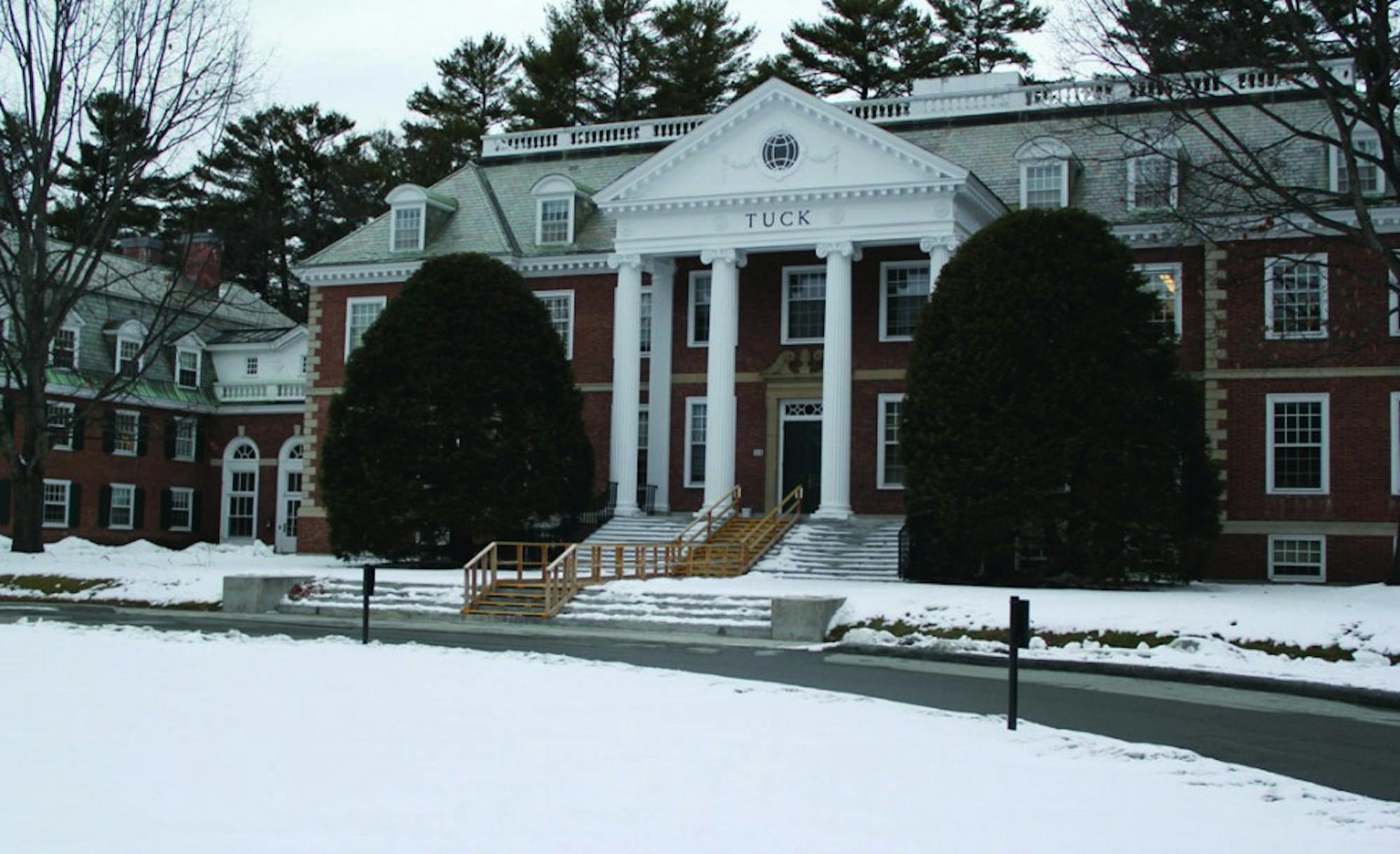Tuck School of Business’s class of 2015 recruitment numbers revealed that 99 percent of students received job offers, up from last year’s 98 percent. These numbers are based on the 85 percent of the class that was looking for jobs three months after graduation. Ninety-five percent of students seeking jobs accepted those offers.
The three largest industries in which members of the graduating class accepted jobs were consulting, with 34 percent placement; financial services, with 24 percent; and technology, with 18 percent.
Director of career development Jonathan Masland said that consulting is the most popular field because it provides students with a skill set that can work with diverse companies, adding that it is also interesting work and pays well.
He said that this level of employment is the highest he has seen in his 11 years at Tuck and is the best among all of the top MBA programs.
“I think it demonstrates how competent and strong the class we bring in is along with the strengths of the ties we have with companies that hire our students are,” Masland said.
Out of the entire class, 18 percent went to three firms: McKinsey & Co., Bain & Co. and the Boston Consulting Group.
Ninety-two percent of the jobs are based in the United States.
The median base salary increased eight percent, to $125,000 from $116,000 last year. The average signing bonus was $28,630, slightly down from last year’s $28,712 average bonus.
The highest salary received by a student was $170,000 and the lowest was $63,466.
One hundred percent of the Tuck class of 2016 seeking internships found one and the average monthly salary for an internship was $8,482.
He added that the numbers reflect the success of the career development office in bringing together the different resources of the office, such as Tuck’s alumni network.
Masland said there will be earlier and more access to career services for students, even before they arrive at Tuck. For example, a group of 50 incoming Tuck students travelled to the Bay Area over the summer to look at energy related businesses.
He also said there will be more resources in regards to career exploration and self-evaluation.
The Tuck Career Development Office will be partnering with a group of students and deans to help further design career services, he added.
Tuck Student Board president Omar Abdelsamad Tu’16 said recruitment numbers for business schools were a major factor in his decision-making process in applying to schools as high numbers gave him a sense of security. He cited Tuck’s 100 percent internship placement as a reason for attending Tuck.
Giuliana Vetrano Tu’16 said she was not as focused on recruitment numbers. She thought that the schools she was applying to would be capable of providing job support, and also noted that her interests were not in a niche field that would be difficult to find opportunities in.
She said one of her favorite services offered by Tuck has been company briefings, which involve recruiting companies coming to campus and presenting to students in their first term.
Vetrano said a potential improvement for career services could be helping students find out what work they want to do.
Sharon Dauson Tu’16 said recruitment numbers along with the firms students received offers from were her primary consideration when she was applying to business schools.
“I definitely viewed business school as an investment in my career and I wanted a school that was going to give me all the career opportunities I could possibly want,” Dauson said.
Compared to Dartmouth undergraduate on-campus recruiting, Dauson said that Tuck on-campus recruiting was more hands on. If recruiting does not work out, Tuck will assign you a helper in finding a job through other venues, she said. These helpers will make sure students have the internship or job they want by the end of their two years there.
Dauson said that the buddy system added this year — where a first-year can get assigned to a second-year student working in the field that first-year is interested in — is helpful to students because the second-year has gone through the same process.
Harvard Business School reported a median base salary of $130,000 for the class of 2015, $5,000 higher than Tuck’s class.
The University of Pennsylvania’s Wharton School of Business reported that 98.4 percent of students seeking jobs received offers, 0.6 percent lower than Tuck’s class.
Correction appended (Jan. 7, 2016):The original version of this article stated that the Harvard Business school reported a median base salary $14,000 higher than Tuck’s class. The median base salary was in fact $5,000 higher than Tuck’s median.
Correction appended (Jan. 19, 2016):
The original version of this article stated that 18 percent of the class went to three firms: McKinsey & Co., Bain Capital and the Boston Consulting Group. The second firm was in fact Bain & Co. not Bain Capital.




